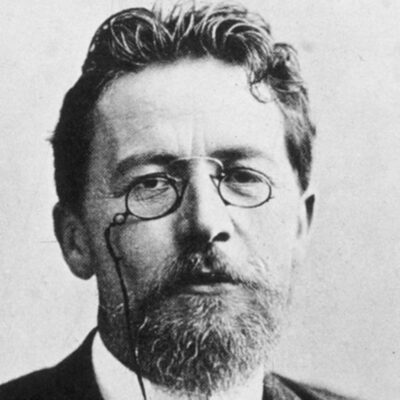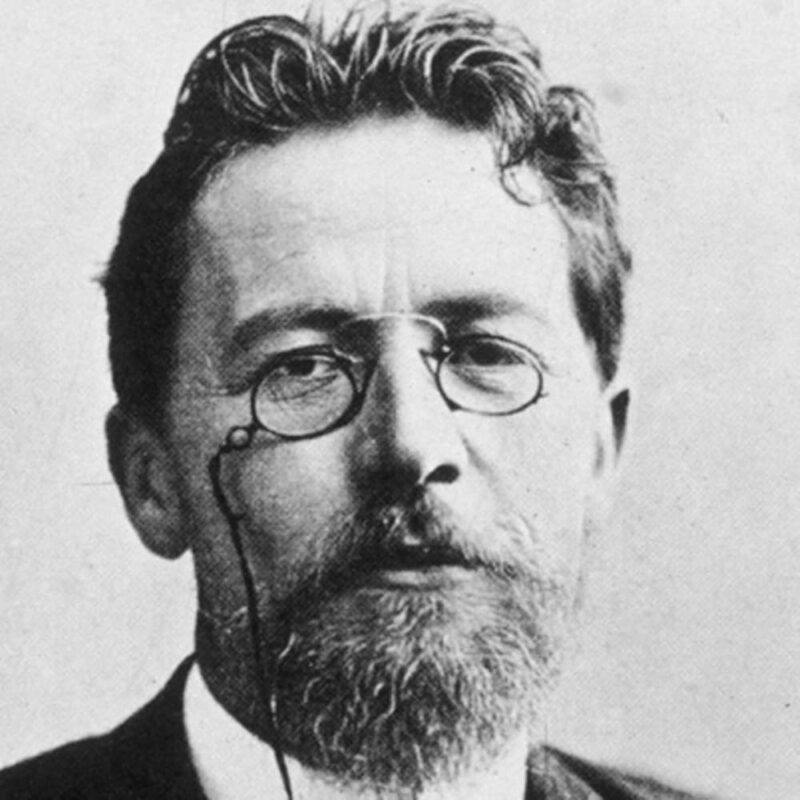Anton Pavlovich Chekhov: A Systematic Biography

1. Early Life and Background
- Birth: Anton Chekhov was born on January 29, 1860, in Taganrog, a port city in southern Russia.
- Family: He was the third of six children in the family of Pavel Yegorovich Chekhov, a grocer, and Evgenia Yakovlevna Chekhova. His father was strict and religious, while his mother was a storyteller who inspired Anton’s love for literature.
- Childhood: Chekhov’s childhood was marked by financial struggles and his father’s authoritarianism. He worked in the family shop and sang in the church choir, but also found solace in reading and theater.
- Education: He attended the Taganrog Gymnasium, where he developed an interest in literature and drama. In 1879, he moved to Moscow to study medicine at Moscow University.
2. Early Career and Literary Beginnings
- Medical Studies: While studying medicine, Chekhov began writing short, humorous stories to support his family financially. He published these under pseudonyms like “Antosha Chekhonte”.
- First Publications: His early works appeared in popular humor magazines such as “Oskolki” and “Strekoza”. These stories were lighthearted and satirical, often poking fun at human follies.
- Dual Career: After graduating in 1884, Chekhov practiced medicine while continuing to write. He once said, “Medicine is my lawful wife, and literature is my mistress.”
3. Rise to Prominence
- Literary Breakthrough: By the mid-1880s, Chekhov gained recognition for his short stories, such as “The Huntsman”, “The Chameleon”, and “The Death of a Government Clerk”. His ability to capture human nature in a few pages set him apart.
- Transition to Serious Writing: In the late 1880s, Chekhov’s tone shifted from humor to deeper, more philosophical themes. Stories like “The Steppe” and “Ward No. 6” explored existential questions and human suffering.
- Recognition: In 1888, he won the Pushkin Prize for his collection “At Dusk”, solidifying his reputation as a serious writer.
4. Major Works and Contributions
- Short Stories: Chekhov is celebrated for his mastery of the short story form. Some of his most famous works include:
- “The Lady with the Dog” (1899) – A poignant tale of love and infidelity.
- “The Bet” (1889) – A philosophical exploration of human values.
- “Gooseberries” (1898) – A story about the pursuit of happiness and its moral implications.
- Plays: Chekhov revolutionized theater with his plays, which focused on mood and character rather than plot. Key works include:
- “The Seagull” (1896) – A play about art, love, and unfulfilled dreams.
- “Uncle Vanya” (1897) – A tragicomedy about wasted lives and missed opportunities.
- “Three Sisters” (1901) – A drama about longing and the passage of time.
- “The Cherry Orchard” (1904) – A symbolic play about social change and loss.
5. Personal Life
- Relationships: Chekhov was known for his modesty and reserved nature. In 1901, he married Olga Knipper, an actress who starred in many of his plays. Their marriage was unconventional, as they often lived apart due to Chekhov’s health and Olga’s theater commitments.
- Health Struggles: Chekhov suffered from tuberculosis for much of his adult life. Despite his illness, he remained productive, traveling to warmer climates for treatment while continuing to write.
6. Later Years and Death
- Final Works: In his later years, Chekhov focused on drama and short stories, creating some of his most profound works, such as “The Cherry Orchard”.
- Death: Chekhov’s health deteriorated rapidly in 1904. He died on July 15, 1904, in Badenweiler, Germany, at the age of 44. His last words, spoken to his wife, were, “I am dying.” He was buried in Moscow at the Novodevichy Cemetery.
7. Legacy and Influence
- Literary Impact: Chekhov is considered one of the greatest short story writers and playwrights in world literature. His works are celebrated for their realism, psychological depth, and subtle humor.
- Theater Revolution: Chekhov’s plays transformed modern theater, influencing playwrights like Tennessee Williams, Arthur Miller, and Samuel Beckett.
- Timeless Themes: His exploration of universal themes—love, loss, hope, and the human condition—ensures his works remain relevant across cultures and generations.
- Famous Quotes: Chekhov’s wisdom is encapsulated in quotes like:
- “Medicine is my lawful wife, and literature is my mistress.”
- “In man, everything should be beautiful: his face, his clothes, his soul, and his thoughts.”
Conclusion
Anton Chekhov’s life and work are a testament to the power of observation, empathy, and artistic integrity. From his humble beginnings in Taganrog to his status as a literary giant, Chekhov’s journey is as inspiring as his stories. His ability to find beauty and meaning in the ordinary continues to resonate with readers and audiences worldwide, making him a timeless figure in literature and theater.

